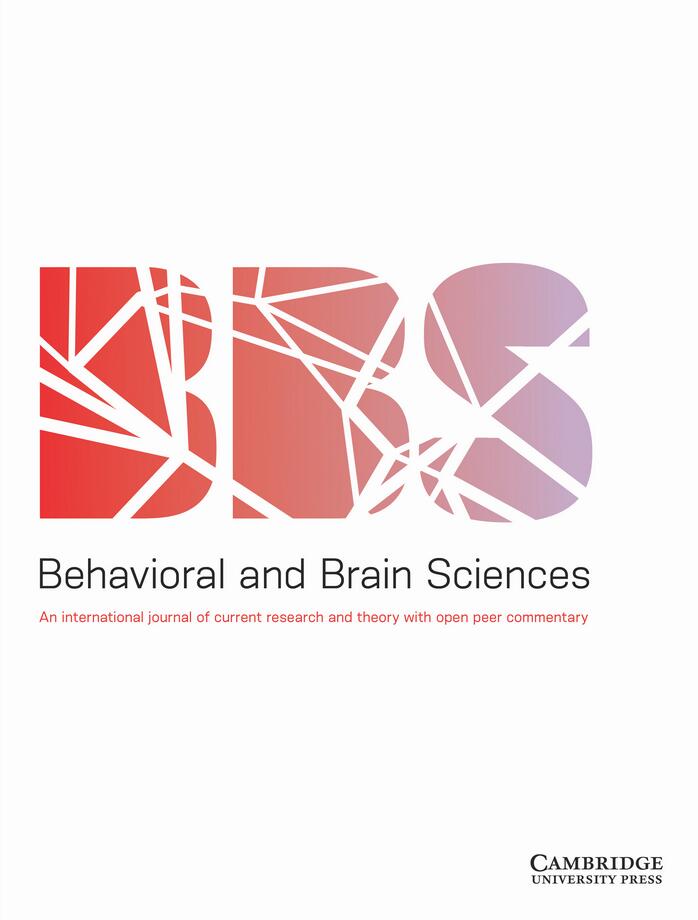人的动机是按等级组织的,从近端(手段)到最终(目的)。
IF 13.7
1区 心理学
Q1 BEHAVIORAL SCIENCES
引用次数: 0
摘要
Murayama和Jach提出了行为科学中的一个关键问题,我们认为进化科学可以提供一个解决方案。我们强调适应机制在塑造行为中的作用,并主张整合目标导向认知和行为灵活性的层次理论,以揭示行为背后的动机,这些行为本身似乎与适应目标脱节。本文章由计算机程序翻译,如有差异,请以英文原文为准。
Human motivation is organized hierarchically, from proximal (means) to ultimate (ends).
Murayama and Jach raise a key problem in behavioral sciences, to which we suggest evolutionary science can provide a solution. We emphasize the role of adaptive mechanisms in shaping behavior and argue for the integration of hierarchical theories of goal-directed cognition and behavioral flexibility, in order to unravel the motivations behind actions that, in themselves, seem disconnected from adaptive goals.
求助全文
通过发布文献求助,成功后即可免费获取论文全文。
去求助
来源期刊

Behavioral and Brain Sciences
医学-行为科学
CiteScore
1.40
自引率
1.70%
发文量
353
期刊介绍:
Behavioral and Brain Sciences (BBS) is a highly respected journal that employs an innovative approach called Open Peer Commentary. This format allows for the publication of noteworthy and contentious research from various fields including psychology, neuroscience, behavioral biology, and cognitive science. Each article is accompanied by 20-40 commentaries from experts across these disciplines, as well as a response from the author themselves. This unique setup creates a captivating forum for the exchange of ideas, critical analysis, and the integration of research within the behavioral and brain sciences, spanning topics from molecular neurobiology and artificial intelligence to the philosophy of the mind.
 求助内容:
求助内容: 应助结果提醒方式:
应助结果提醒方式:


